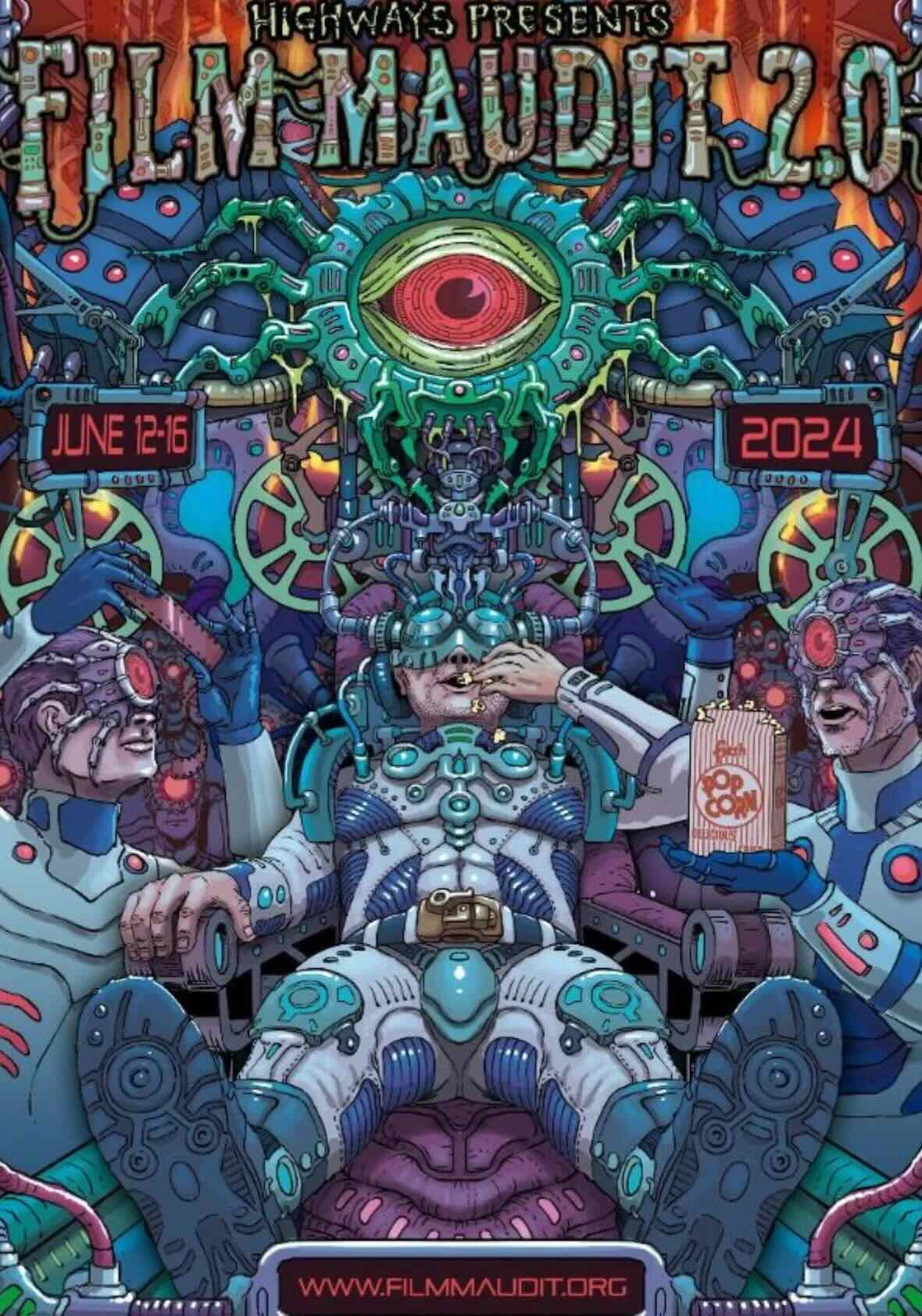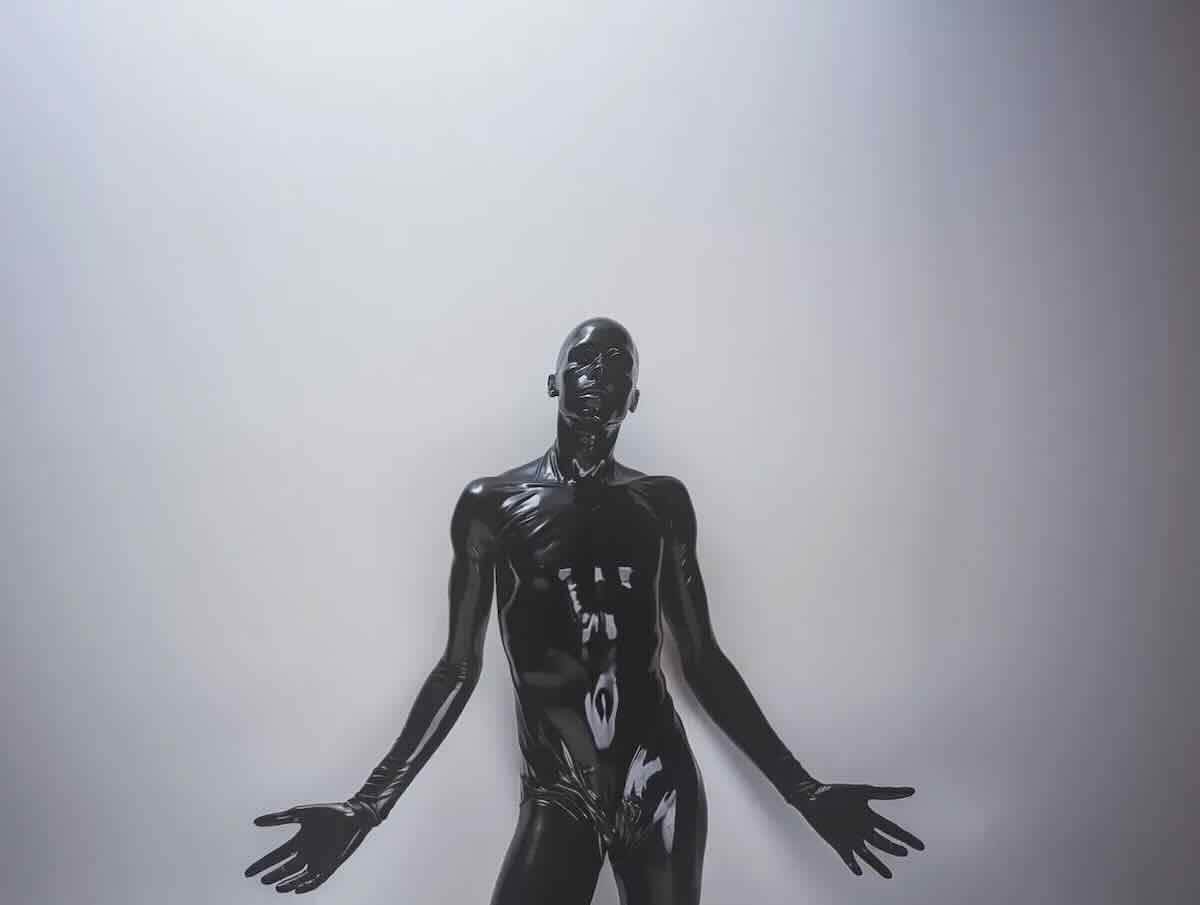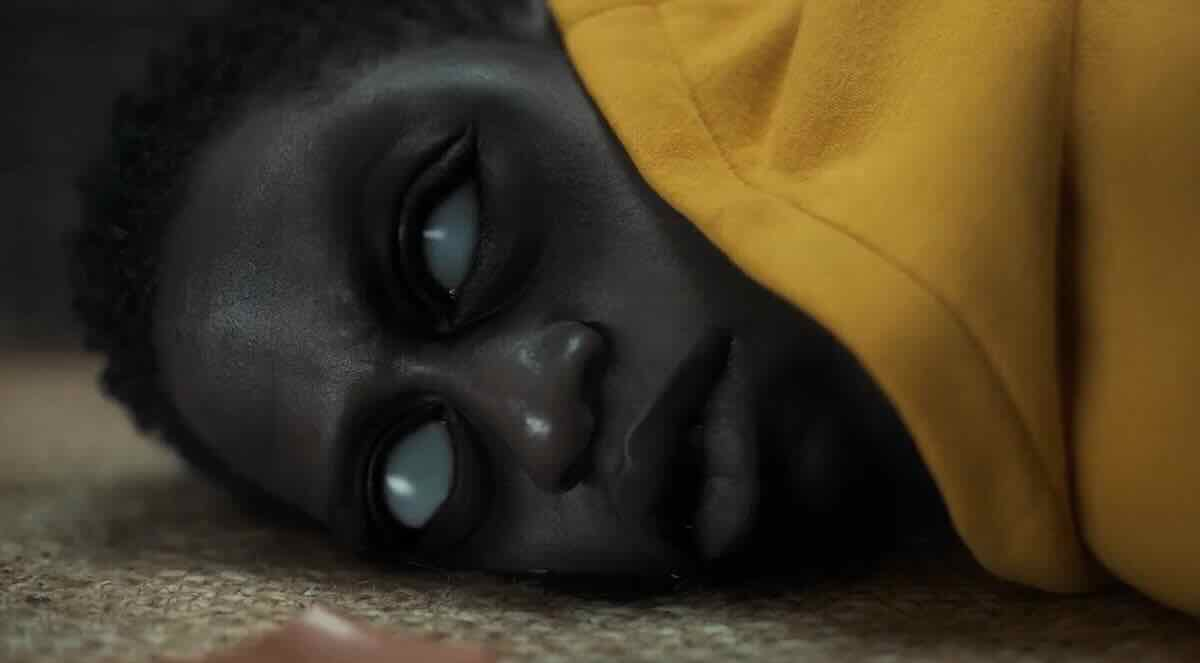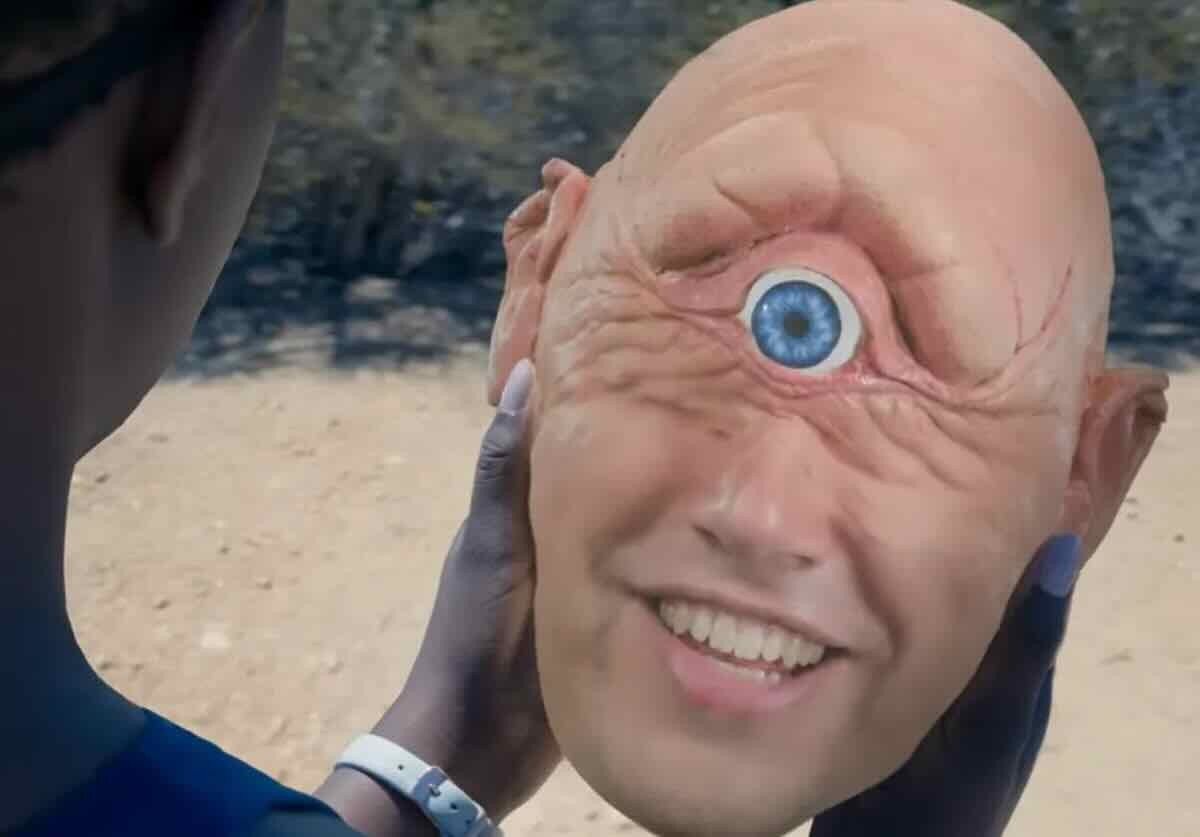
The fifth edition of the Los Angeles-based Film Maudit 2.0, which began on June 12th and continued for three more jampacked days, clearly overwhelmed the senses in a manner few other festivals can approach. Having viewed several of the over 100 World and L.A. premieres, I can swear on the life of my first child—luckily, I’m infertile—that only a sprinkling of comparative fests will ever have your neurons bouncing as high.
Sadly, for those not on the West Coast, those who couldn’t get their rumps to the Highways Performance Space & Gallery in Santa Monica, don’t be bummed out. Just go to the Maudit site, scribble down the titles of these oft-bestirring movies, and google them out over the year.
But, you ask, what inspired this event? Well, the literal translation of the film maudit is “cursed film.” Back in 1949, the writer/director/god Jean Cocteau ushered in a jury that assembled a showcase of cinematic offerings that’d been slighted at the time or were deemed “shocking, outré, and bold.” The result: the legendary Festival du Film Maudit in Biarritz. Among the showcased were Kenneth Anger’s zipper-exploding “Fireworks” (1947), Josef von Sternberg’s The Shanghai Gesture (1941) and Jean Vigo’s L’Atalante (1934).
Without question, this year’s L.A. offerings would have had Cocteau pirouetting with joie de vivre once again.
Take Mark H. Rapaport’s Hippo, a tale inspired by the myth of Hippolytus. You remember the stunningly handsome lad, right? His stepmother, due to interference by a goddess, falls madly in love with him. When Mr. Hippolytus rejects her advances, she falsely accuses the young man of rape and then hangs herself, causing her husband to arrange for the assassination of his son by a sea monster.
None of the above is necessary to know unless you’re into artistic inspirations. There are no sea monsters in Hippo, just a highly dysfunctional, late 1990s family. Dad is demised. Mom (Eliza Roberts), once institutionalized and off her drugs, is exceedingly cheery. The dependably angry Hippo (Kimball Farley), is a 19-year-old literally raised by Nintendo 64 video games (e.g. Body Harvest). Chronically dour, this teen sleeps with a stuffed toy hippo over his genitalia because the accompanying friction feels so fine. Meanwhile, his adopted Hungarian sister Buttercup (Lilla Kizlinger), whose highly accented vocal intonations are strictly monotone, wants to get impregnated by her bro.
The latter deed will be hard to accomplish since the siblings really have not quite got the hang of what sex really is, and Mom is no help, although she is accomplished at baking birthday cakes.
Please note that the trio lives in an isolated country landscape and only has each other to annoy and learn from. Eventually, water guns and Craig’s List are brought into the scenario to move the action into high gear. Also, add the possibility of an alien attack.
Shot in a mouth-wateringly stark black-and-white by William Tracy Babcock and fetchingly narrated by the Eric Roberts, Hippo is hilariously funny in a sort of Yorgos-Lanthimos-meets Ed-Wood way.
Moving forth from macabre fiction to technological dread, Graeme Arnfield’s unsettling found-footage documentary, Home Invasion, which he created while in bed, recalls a Hunter S. Thompson quote:
“There is no such thing as paranoia. Your worst fears can come true at any moment.”
The film begins in 1966 when Marie Van Brittan Brown, a Black New York City nurse, woke up from a recurring nightmare that her house was being invaded. Living in a high-crime neighborhood and being a victim of several robberies that were not taken seriously by a racist police force, she invented and patented a video home security system.
Ms. Brown now could see what was occurring outside her door, from dogs on the loose to her fellow man, possibly up to no good. Did this give her peace of mind? Not one bit. She wound up, when home, addictively monitoring life forms in her vicinity. “The future had become her nightmare.”
Then Jamie Siminoff’s video doorbell rang in, a device that can notify you by phone when thieves, vandals, and squirrels are penetrating your home. His company, Ring LLC, was acquired by Amazon for approximately $1 billion in 2018. Has his invention made life more peaceful for you? Not according to Mr. Arnfield.
And what about the demonic telephone? From the safety of his mattress no doubt, the director quotes Freud here, noting how Sigmund “compared the phone’s ability to overcome distances of making inside outside and outside into the magical powers bestowed upon people in fairy tales.” Did Hansel and Gretel really fare that well?
And what about gaslighting? Maybe the Luddites were on the right side of history?
“Powers that seem good on the surface, . . . by the end reveal unforeseen consequences for those who desired them, teaching us to be careful about what we wish for” appears to be Home Invasion’s maxim. Really? Aren’t these inventions really safeguarding us and our kin? Or are we just supplying the powers-that-be instruments to spy on us and eventually exercise total control over our daily lives?
The whole of Home Invasion is screened through a sort of peephole in very short clips, some seconds long, that bombard the senses. The phone segment, about a half-hour in length, includes countless shots of Audrey Hepburn, Mia Farrow, Drew Barrymore, Barbara Stanwyck, and dozens of others portraying femme fatales, all helplessly terrorized, often with a useless phone in hand or worse, a cut phone cord nearby.
By the end of this segment, I felt like A Clockwork Orange’s Alex after his wired-open eyes were subjected to unending clips of the world’s atrocities. I was a-shaking.
Accompanied by an effective electronic soundtrack, Home Invasion might be best viewed in at least three separate sittings. Taken all at once, this absorbing conglomeration of snapshots of modern life, with more than a few treks to the historical past, might just have you locking yourself in your closet for a few weeks.

Well, if you are a fan of Andy Cohen’s oeuvre or MILFs in general, come on out. My Imaginary Life for Someone, written and directed by Molly Wurwand and Ryan McGlade, is a rather droll satire of The Real Housewives of . . . phenomenon, which I thought was already a satire.
This mockumentary focuses on a handful of semi-deranged souls who, unaware of their own inanities, are quite content to allow cameras into their McMansions.
For instance, there’s a former Miss February Playboy Centerfold of 1982. She’s wed to a wealthy gent who has several urns containing the ashes of his former wives in the dining room. There are also several empty urns close by in case any of his present or future wives suddenly croak, too.
Another gal attired in a bosom-popping pink designer suit is celebrating her wheel-bound hubby’s 100th birthday only to discover 101 lit candles can cause a nasty little fire. Please get his oxygen tank out of the way.
Then there’s Vanessa Spencer, who has the largest collection of Princess Diana memorabilia in the United States, including the late royal’s favorite perfume. “I’m so happy I can smell like Princess Diana.” But that’s not enough. Her dream is to clone Di from a few hair strands she’s garnered.
Of the other ladies, one has to have replicas of the swan faucets at the Ritz Hotel for her bathtub no matter the cost. Another relates memories of Siegfried and Roy, while yet another has been on a diet of Bagel Bites for nine months. Also appearing are plastic surgery victims whose doctors are hawking screenplays, untalented hard-rocker sons, and purchasers of Chanel №5 by the gallon. These all might be the same person or not. I won’t be rewatching to My Imaginary Life for Someone again to doublecheck, but that isn’t meant to be derogatory.
One viewing, especially with a gang of your cohorts, some above average wine, and loads of buttered popcorn, is a rather delightful way to spend 75 or so minutes with this madcap enterprise. Just for fun don’t let on to your pals that it’s all staged.
Kafkaesque allegory, anyone? If so, the Finnish Anna Eriksson serves one up with W, her second feature. An award-winning artist/director/composer/singer, here is someone you might label “brilliant” with a certain assuredness you won’t be eating your adjective in a year or two.
W opens with a battered Madame Europa (Eriksson) in bed, nude but for some metal straps, and naked she will remain throughout. Bellowing to her Chinese man-machine, the aching world leader yowls: “My sheets need changing. . . .Where is my medicine? . . . You are a heartless bastard. . . . I created you. Don’t forget that.”
Her skin is transparently white, as if the sun had abandoned her at birth. But then all of her nurse-attendants, the man-machine, and her young son all could give Bela Lugosi a run for the money in a pallidness contest. They also all smoke. The boy, too. And there is never a smile among these inhabitants of a barren fortress.
Outside, there is ceaseless snow. Inside, there are endless corridors and an unclothed, aged man who seems to be reliving the French Revolution. While wandering about, he notes: “Your time is over, bitch. It’s never coming back . . . . You sold your children for a good fuck. . . . Revolution isn’t born from the cunt. It’s born in the hearts of the poor and desperate.”
Yes, Europa/Europe is in her/its death throes. There is a war closing in on the mad damsel, and when the enemy arrives she will no doubt be torn apart.
“The future was a smoke screen, after all.”
The courageous Ms. Eriksson here seems to be arguing that the world is going to hell in a handbasket. Utilizing the screen as a canvas, she seduces you into her vision of a chaotic time cleaved from any hope. Or as Madame Europa insists: “We are born, we live, we die . . . in our imagination.”
(The Best Line of Dialogue Award of June 2024 from W: “Your face reminds me of a eunuch I once loved.”)

If that’s not dystopian enough for you, Fran Gras’s startlingly short from Spain, “Latex Kid,” will push you over the edge into deliciously scintillating despair and then might just rescue you.
In this futuristic world--or more likely the world of now--the populace is slowly enveloping itself in shiny black latex from head to toe, from businessmen to teens to world leaders. Why?
We are told that material’s “flexibility and adhesive properties are so good that latex is the perfect material to be used as a second skin that protects us from the real world.”
No wonder the most influential musician of the time is the Latex Kid, who from his very beginnings in an orphanage was all black and shiny. And no wonder his music is a caterwaul.
“Is there someone under all that ebon glossiness, someone who wants to escape his “protective coating”? his fans ponder.
With an appropriately pulsating, garish soundtrack by Lavenzza and plucky visuals that both seduce and repulse, “Latex Kid” might just be the best ten minutes of soul-searching cinema you’ll see this year.

Black Mirror meets the Muppets in EROS V’s laugh-out-loud 12-minute venture “Meat Puppet.” Here Nathan (David Jonsson), a young man, due to his addiction playing with action figures, misses the first 15-minutes of his graduation ceremony. His disheartened girlfriend (Måiréad Tyers) phones him and tells him in so many words to get his ass to campus. But as Nathan’s about to head out, his doorbell rings.
A package! He wasn’t expecting any deliveries today. What could be in the box? Why it’s an innocent looking hand puppet. Oh my! Well, why not try it out? Famous last thoughts?
Instantly, Nathan’s soul is entombed in the Elmo-lookalike that has grafted itself onto his arm. Nathan’s pupils turn white and his body begins to die, and the puppet comes to life. Maybe if his girlfriend arrives in time, she will be able to save the day without resorting to . . . ? Well, maybe not.
Eros V, whose work has been broadcast on Disney+, has contrived here a bit of a classic romp that hopefully will be available on all platforms. Mankind deserves it.
Sandy is a bit unnerved by this request and tries to dissuade Dan but fails. She does warn him that her parents are “nuts.” The young man doesn’t care and enters her home, where almost immediately he starts gasping for air. What he doesn’t comprehend is that Sandy’s folks are really nuts: man-sized peanuts, in fact. To top it off, Dan has a nut allergy that causes ungainly facial pustules. What’s needed here is a man-sized EpiPen. Is one around?
Sweet and ghoulish, with knee-slappingly funny costumes and production design, this one is a fck’n treat whether you like snacks dry-roasted or not.

Just as salty is Justin Edwards, a Georgia lad who records under the moniker “Saturated” when not directing mind-piercing entertainments. Eye-piercing though would be more accurate. In his “Day of the Cyclops,” Myles (an engaging Kaylah Dixon) is videotaping herself in her garage when she trips on a cord and falls directly upon a replica of the Eiffel Tower, gauging her eye socket. Not a pretty sight.
Time passes, and one morning while considering overdosing on painkillers, an earthquake strikes, and Myle’s tablets scatter. Striding into her front yard to check out the aftermath, she discovers a huge hole at the bottom of which lies a cyclops’ skull.
Intriqued, Myles brings the bonehead inside, places it next to her Apple laptop, and starts googling for cyclops factoids. Suddenly the skull (Adam McCabe) starts chatting with her, revealing that he’s a demigod in need of contacting Zeus on a hilltop.
Up the hill the pair goes where Zeus strikes the duo with lightning, and Mr. Cyclops gets a face. All he needs now is a body. Does Myles know anyone who wouldn’t mind getting murdered so a demigod can walk about after centuries of just lying about?
Seldom less than resoundingly ridiculous, this light-footed entertainment traverses its 17 minutes with just one goal: to make you smile . . . and it unqualifiedly succeeds.

As does Melbourne-based Holly Bates’ “House of Whoreship,” which has been labeled by Vice as “a queer short film made for sex workers by sex workers.” This, her graduate film and directorial debut, displays great promise and humanity while breaking new ground on that-time-of-the-month trope.
Violet (Matisse Laida), working in a cheap brothel, discovers she and her cheating ex are on the same shift. That’s depressing. But wait, there’s more. The young woman just got her period, has to barter for dexies from one co-worker and for a sponge tampon from another. If this isn’t enough, the sponge wedges up deep into her privates and she has a client waiting. Hey, Violet wonders, who has short enough fingernails to pull out the tampon without causing injuries? Her former gal pal, of course.
“The hooker gods are looking out for us.”
Well, the sponge is dislodged and all ends well or as Violet intones, “The hooker gods are looking out for us.”
Definitely a good pitch reel to raise cash for a feature effort, “Whoredom” is a well-helmed, solidly acted launching of several new talents.
-----------------------------------------------
These were just a splattering of this year’s offerings, a collection that reminds one of when Man Ray asked: “Isn’t it this perpetual mania of imitation that prevents man from being a god?” If so this highly original group of directors is clearly heading for Mount Olympus.
